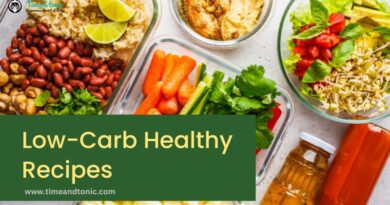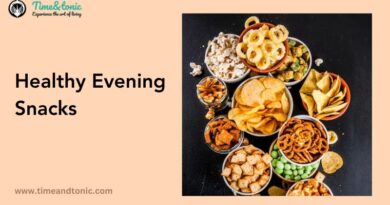10 Weight Loss Tips That Let You Enjoy Cheese
In a world where health and wellness have become paramount, the quest for effective weight loss tips has captured the imagination of millions. The pursuit of a healthier lifestyle, improved self-esteem, and reduced risk of chronic illnesses drives people to explore various avenues for weight management. Amidst the abundance of information available, it can be overwhelming to discern the most practical and sustainable methods.
This pursuit is not just about shedding pounds; it’s about embracing a holistic approach that encompasses physical activity, balanced nutrition, mental resilience, and positive lifestyle changes. Whether you’re on a journey to lose a few extra pounds or aiming for a significant transformation, understanding the fundamental principles of weight loss is essential.
This guide is designed to be your compass in the intricate terrain of weight loss. Here, you will find a wealth of practical, science-backed tips and strategies tailored to assist you on your weight loss journey. From deciphering the intricacies of calorie intake to exploring the significance of mindful eating, from demystifying fad diets to emphasizing the importance of regular exercise, we delve into every aspect of weight management.
So, let’s embark on this transformative expedition together, embracing a healthier, happier, and more confident version of yourself.
10 Weight Loss Tips
Following are the best weight loss tips:
Also Read: Bliss Belly Fat Trimming Tea’s

Low-fat Cheese
Low-fat cheese, a popular dairy alternative, offers a healthier option for cheese lovers aiming to reduce their fat intake. Crafted by skimming the cream off whole milk or blending with low-fat milk, this cheese variety retains the essence of traditional cheese while significantly cutting down on fat content. It is a rich source of essential nutrients such as calcium and protein, crucial for bone health and muscle development.
With a milder taste than full-fat cheese, it is versatile, making it ideal for salads, sandwiches, and cooking. Whether you’re health-conscious or simply savoring a guilt-free indulgence, low-fat cheese provides a delicious compromise without compromising on flavor or nutrition.
Control Portions
Controlling portions is a cornerstone of balanced and mindful eating, essential for maintaining a healthy weight and overall well-being. It involves being aware of the quantity of food consumed, helping prevent overeating and unnecessary calorie intake. By understanding proper portion sizes, individuals can enjoy a diverse range of foods while managing their weight effectively.
It’s about listening to your body’s natural hunger and fullness cues, promoting a healthier relationship with food. Portion control aids digestion, boosts energy levels, and contributes to better nutrient absorption.
Cheese with Fiber-Rich Meal
Incorporating cheese into a fiber-rich meal offers a delightful fusion of taste and nutrition. Cheese, a rich source of protein and calcium, combined with a fiber-packed meal, creates a well-rounded, satisfying dish. Fiber, found in fruits, vegetables, and whole grains, aids digestion, promotes a feeling of fullness, and stabilizes blood sugar levels. When paired with cheese, known for its creamy texture and savory goodness, the result is a flavorful, balanced meal.
The protein in cheese complements the slow-release energy from fiber, keeping you satiated longer. This combination not only tantalizes your taste buds but also ensures a steady energy supply, making it a wholesome choice for a nourishing and enjoyable dining experience.

Choose Strong Cheeses
Opting for strong cheeses is a culinary choice that tantalizes taste buds and elevates dishes with bold, distinct flavors. These cheeses, like aged cheddar, gorgonzola, or Parmesan, are often characterized by their intense taste and aromatic profiles.
Besides their robust flavors, strong cheeses pack a nutritional punch, being rich in calcium, protein, and vitamins. When used sparingly, they add depth to salads, pastas, and sandwiches, transforming ordinary meals into gourmet delights.
Cheese Garnishes
Cheese garnishes, a culinary artistry, transform ordinary dishes into gastronomic delights. From delicate shavings of Parmesan atop a vibrant Caesar salad to crumbles of tangy feta enhancing the flavors of a Mediterranean pasta, cheese garnishes are a testament to the power of subtlety in cooking.
These garnishes provide a delightful contrast of textures, adding creaminess or crunchiness as needed. Moreover, they introduce complex flavors that dance on the palate, enhancing the overall taste profile of the dish.
Savor Cheese Mindfully
Savoring cheese mindfully is more than just a culinary experience; it’s an art form that demands attention and appreciation. Each bite, whether it’s the creamy indulgence of brie or the sharp tang of aged cheddar, deserves to be relished slowly and deliberately. Mindful cheese consumption involves engaging all the senses, from observing its texture and color to inhaling its unique aroma.
Taking time to explore the intricate flavors, allowing them to unfold on your palate, enhances the gastronomic journey. It’s about acknowledging the craftsmanship, tradition, and terroir that contribute to each cheese variety.
Also Read: Smart Late-Night Snacks
Protein-Rich Cheeses
Protein-rich cheeses stand as nutritional powerhouses, combining exquisite taste with substantial health benefits. Varieties like cottage cheese, ricotta, and paneer are not only delectable but also packed with high-quality proteins, essential for muscle repair and growth. These cheeses offer a complete amino acid profile, crucial for overall body functions.
Additionally, protein-rich cheeses are excellent sources of calcium and essential vitamins, promoting robust bone health. Their low lactose content makes them suitable for many lactose-intolerant individuals.

Moderate Your Diet
Moderating your diet is a fundamental principle for sustainable and balanced living. It involves the thoughtful regulation of food intake, emphasizing quality over quantity. By being mindful of portion sizes and making nutritious choices, you maintain control over calorie intake, leading to healthy weight management.
A moderate diet encourages the consumption of whole, unprocessed foods—abundant in vitamins, minerals, and fiber—while limiting the intake of sugars, saturated fats, and processed foods. This mindful approach supports overall health, reducing the risk of chronic diseases such as diabetes and heart conditions.
Avoid Processed Cheese
Avoiding processed cheese is a crucial step towards optimal health and nutrition. Unlike natural cheeses, processed cheese products are laden with additives, preservatives, and artificial flavors, diminishing their nutritional value. These cheeses often contain high levels of sodium and unhealthy fats, contributing to elevated blood pressure and cholesterol levels.
Seek Expert Guidance
Seeking expert guidance is a prudent and empowering choice on your journey to better health and well-being. Whether you’re aiming for weight loss, adopting a new fitness regimen, or embarking on a dietary change, consulting professionals such as nutritionists, dietitians, and fitness trainers provides invaluable insights tailored to your specific needs.
These experts offer evidence-based advice, personalized meal plans, and targeted exercise routines, ensuring you make informed decisions aligned with your goals. Their knowledge not only optimizes results but also enhances your understanding of health, fostering long-term habits. Expert guidance acts as a compass, guiding you through challenges, and empowering you with the tools needed for a healthier, happier life.
Also Read: Plant Based Protein
Conclusion
In conclusion, we have discussed Weight Loss Tips. Embarking on a weight loss journey demands dedication, knowledge, and perseverance. By embracing mindful eating, regular exercise, and seeking expert advice, you pave the way for sustainable change. Remember, every small step counts, and with determination, you can achieve your goals. Stay committed, stay positive, and let these tips be your guide towards a healthier, happier you.
FAQs
Yes, foods like fruits, vegetables, lean proteins, whole grains, and low-fat dairy can aid weight loss due to their high nutritional value and lower calorie content.
While not mandatory, calorie awareness can be helpful. It ensures you maintain a calorie deficit, essential for weight loss. Focus on nutrient-dense foods within your calorie limit.
Absolutely. Plan meals, incorporate quick home workouts, stay hydrated, and opt for healthier restaurant choices. Prioritizing sleep and managing stress are also vital.




